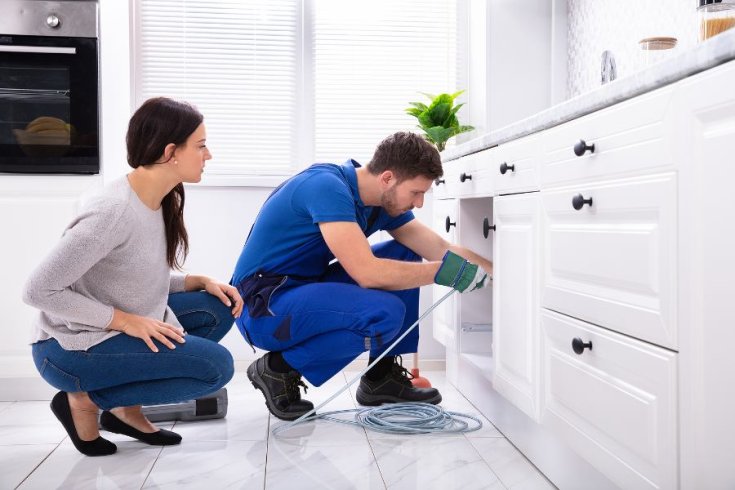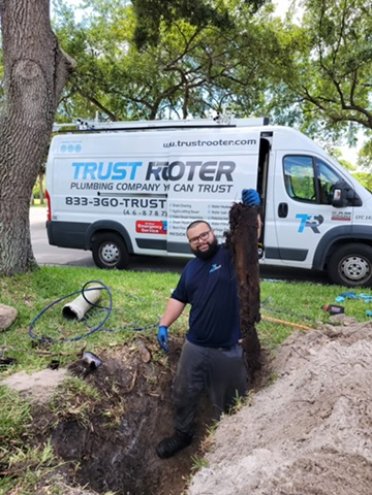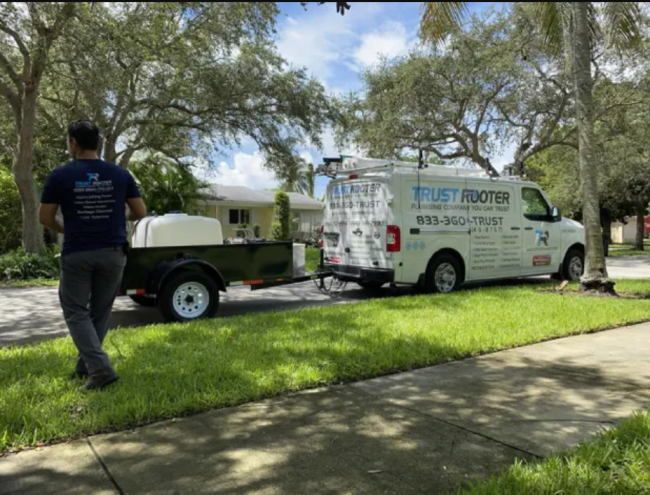As you probe deeper into the world of toilet troubles, you'll find that a clogged toilet can be caused by a variety of factors, including the flushing of non-flushable items such as wet wipes, sanitary products, and paper towels. These items can accumulate in your pipes and cause blockages, leading to frustrating and messy backups. For instance, a single wet wipe can expand up to 10 times its original size when exposed to water, making it a significant contributor to clogs. Similarly, low-flow toilets can also be prone to clogging due to their design, which can lead to insufficient water flow to effectively flush away waste.
Your approach to fixing a clogged toilet will depend on the severity of the issue, with DIY fixes such as plungers and augers being effective for minor clogs, while more serious issues may require the assistance of a professional plumber in Lauderhill, FL. For example, if you're experiencing repeated clogs or backups in multiple drains, it may be a sign of a more extensive problem that requires expert attention. In such cases, it's best to seek the help of a reliable plumbing service, such as Trust Rooter Plumbing & Drain Cleaning, located at 10752 La Placida Dr #8-A1, Coral Springs, FL 33065, United States.
Key Takeaways:
-
To fix a clogged toilet without making it worse, it's imperative to understand the common causes, such as flushing non-flushables or low-flow toilet problems.
-
DIY fixes like using plungers and augers, or natural drain cleaners, can be effective in resolving the issue before calling a professional.
-
Identifying the root cause of the clog, whether it's a one-time incident or repeated clogs, is vital in determining the best course of action.
-
If the clog is severe or there's a backup in multiple drains, it may be time to call a professional plumber to avoid further damage.
-
Regular maintenance and being mindful of what you flush can help prevent future clogged toilet troubles.
Trust Rooter Plumbing & Drain Cleaning 10752 La Placida Dr #8-A1, Coral Springs, FL 33065, United States
Identifying What’s Really Blocking Your Flush
Now that you've stopped the water from overflowing, your next step is to figure out what's causing the clog in your clogged toilet. This is where many people go wrong, as they often try to fix the problem without understanding its root cause. You might be surprised to learn that a significant number of clogs are caused by items that shouldn't be flushed in the first place. Taking a closer look at what you're putting down your toilet can help you identify the problem and prevent future clogs.
Your toilet is designed to handle human waste and toilet paper, but anything else can potentially cause problems. Even items that claim to be "flushable" can still cause issues, especially if you have an older toilet or a septic system. You should never flush wet wipes, sanitary products, or paper towels, as these can quickly cause a clog. By being more mindful of what you're flushing, you can reduce the risk of a clog and keep your toilet running smoothly.
The Dangers of Flushing Non-Flushables
Flushing non-flushables can lead to serious problems, including clogs, backups, and even damage to your pipes. You might think that flushing a small item, like a cotton ball or a piece of string, won't cause any harm, but these items can accumulate and cause big problems over time. In fact, many plumbers report that the majority of clogs they fix are caused by non-flushable items. By taking the time to properly dispose of these items, you can save yourself the hassle and expense of dealing with a clogged toilet.
Additionally, flushing non-flushables can also harm the environment. Many of these items can make their way into waterways, causing problems for local wildlife and ecosystems. You can do your part to protect the environment by being more mindful of what you're flushing and making sure to dispose of non-flushable items properly. This simple change can make a big difference in the long run and help keep your community's waterways clean.
How Low-Flow Toilets Can Contribute to Clogs
Low-flow toilets are designed to use less water, which can be beneficial for the environment, but they can also contribute to clogs. These toilets often have a more complex flushing mechanism, which can be prone to clogs if not properly maintained. You should regularly check your toilet's flushing mechanism to make sure it's working correctly and make any necessary adjustments. This can help prevent clogs and keep your toilet running smoothly.
Furthermore, low-flow toilets can be more susceptible to clogs due to their lower water pressure. This means that any debris or blockages in the pipes can be more likely to cause a clog, as there's less water pressure to push them through. You can help mitigate this by being more mindful of what you're flushing and taking steps to maintain your toilet's flushing mechanism. By taking these simple precautions, you can reduce the risk of a clog and keep your low-flow toilet running efficiently.
For example, you can try checking your toilet's flush valve to make sure it's not clogged with debris. You can also try using a toilet brush to scrub away any mineral deposits or buildup that might be contributing to the clog. By taking these steps, you can help keep your low-flow toilet running smoothly and prevent clogs from forming. Trust Rooter Plumbing & Drain Cleaning 10752 La Placida Dr #8-A1, Coral Springs, FL 33065, United States.
Step-by-Step DIY Solutions
To tackle your clogged toilet troubles, you'll need to employ the right tools and techniques. The following table outlines the most effective DIY methods:
| Method | Description |
| Plunger | A plunger creates suction to remove blockages |
| Auger | An auger breaks up stubborn clogs with a rotating cable |
| Natural Drain Cleaners | Environmentally friendly cleaners like baking soda and vinegar dissolve debris |
By understanding how to use these tools, you'll be well-equipped to handle most clogged toilet situations. Your goal is to clear the blockage without causing further damage to the toilet or pipes.
The Art of Using Plungers and Augers Effectively
You'll want to start by using a plunger, as it's often the simplest and most effective solution. Make sure the plunger is properly seated over the clogged drain to create a tight seal. Then, push down slowly and steadily, maintaining the suction until you feel resistance give way. If the plunger doesn't work, it's time to bring in the auger. Feed the rotating cable into the drain, breaking up any stubborn clogs until the water flows freely. Be careful not to scratch the toilet bowl or pipes with the auger's cable.
Harnessing the Power of Natural Drain Cleaners
Natural drain cleaners are a great alternative to harsh chemicals, which can damage pipes and harm the environment. You can create your own natural cleaner by mixing 1 cup of baking soda with 1 cup of vinegar. Pour the mixture down the clogged drain and let it sit for a few hours or overnight. The mixture will fizz and dissolve any debris, allowing you to flush the toilet normally. For tougher clogs, you can repeat the process a few times until the blockage is cleared.
Using natural drain cleaners can also help prevent future clogs by removing any built-up residue in the pipes. By incorporating this method into your regular maintenance routine, you'll reduce the likelihood of dealing with a clogged toilet in the first place. Trust Rooter Plumbing & Drain Cleaning 10752 La Placida Dr #8-A1, Coral Springs, FL 33065, United States.
Recognizing Troubling Signs
As you deal with a clogged toilet, you'll start to notice certain signs that indicate the problem is more severe than you initially thought. Your toilet may be flushing slowly, or water may be rising to the brim of the bowl, threatening to overflow. In some cases, you might hear strange gurgling noises coming from the toilet or nearby drains. These signs suggest that the issue is not just a simple clog, but rather a symptom of a larger problem within your plumbing system.
Your plumbing system is interconnected, and a problem in one area can quickly spread to others. For instance, if you have a septic system, a clogged toilet can cause sewage to back up into your home, leading to costly and unsanitary cleanup. Similarly, if you're on a municipal sewer system, a clogged toilet can lead to overflows that contaminate local waterways and pose health risks to you and your community. By recognizing these troubling signs, you can take proactive steps to address the issue before it's too late.
Understanding the Implications of Repeated Clogs
Repeated clogs are a clear indication that there's an underlying issue with your toilet or plumbing system. If you find yourself plunging your toilet on a regular basis, it may be a sign that your toilet is not functioning properly, or that there's a blockage further down the line. In some cases, repeated clogs can be caused by improper toilet installation, which can lead to a range of problems, including poor flushing performance and increased water consumption. By addressing the root cause of the problem, you can save yourself the hassle and expense of repeated repairs.
Furthermore, repeated clogs can also be a sign of more serious issues, such as tree root invasion or pipe collapse. If you're experiencing repeated clogs, it's crucial to have your plumbing system inspected by a professional to identify any potential problems. A professional plumber can use specialized equipment, such as cameras and drain snakes, to diagnose the issue and provide a effective solution. By taking proactive steps to address the problem, you can avoid costly repairs and ensure that your plumbing system is functioning properly.
When Multiple Drains Signal a Bigger Problem
If you're experiencing clogs in multiple drains, it's likely a sign of a larger issue with your plumbing system. This could be due to a range of factors, including pipe corrosion, mineral buildup, or even a problem with your sewer line. When multiple drains are affected, it's crucial to take a comprehensive approach to diagnosing and resolving the issue. A professional plumber can help you identify the root cause of the problem and provide a effective solution to get your plumbing system functioning properly.
In addition to addressing the immediate problem, a professional plumber can also provide guidance on how to prevent future clogs and maintain your plumbing system. This may include recommendations for drain cleaning products, plumbing maintenance schedules, and even upgrades to your plumbing system. By taking a proactive approach to plumbing maintenance, you can avoid costly repairs and ensure that your home remains safe and healthy. For all your plumbing needs, contact Trust Rooter Plumbing & Drain Cleaning at 10752 La Placida Dr #8-A1, Coral Springs, FL 33065, United States.
Knowing When to Call in The Experts
As you've tried various DIY fixes, you may have realized that your clogged toilet issue persists, and it's time to seek professional help. You've invested time and effort into resolving the problem, but the clog remains, and you're unsure of the next steps to take. Your attempts to fix the issue may have even led to more severe problems, such as water damage or further clogging. In such cases, it's important to acknowledge your limitations and seek the expertise of a professional plumber.
Your safety and the integrity of your plumbing system should be your top priority. Continuing to attempt DIY fixes can lead to more harm than good, causing you to incur unnecessary expenses and stress. By recognizing the signs that indicate you need professional assistance, you can avoid exacerbating the issue and ensure a timely, effective resolution.
The Risks of DIY Fixes Gone Wrong
Using chemical drain cleaners or other harsh substances can damage your pipes, leading to costly repairs or even replacement. Moreover, if you're not familiar with the inner workings of your toilet, you may inadvertently cause more clogs or create new problems, such as leaks or water damage. You may also be putting yourself at risk of injury, as some DIY methods can be hazardous if not executed properly. For instance, using a plunger or auger incorrectly can lead to accidents or further clogging.
Furthermore, if you're dealing with a recurring clogged toilet issue, it may be a sign of a more significant problem, such as a blockage in your main sewer line or a faulty toilet installation. In such cases, DIY fixes are unlikely to provide a lasting solution, and you'll need the expertise of a professional plumber to identify and address the root cause of the issue.
What Professional Help Can Offer
Professional plumbers have the training, experience, and equipment to diagnose and fix complex plumbing issues, including clogged toilet problems. They can use specialized tools, such as camera inspection systems, to identify the source of the clog and develop an effective plan to resolve it. With their expertise, you can ensure a thorough and lasting fix, avoiding the risk of further damage or clogs.
Additionally, professional plumbers can provide you with valuable advice on how to maintain your plumbing system, prevent future clogs, and ensure your toilet is functioning efficiently. They can also help you identify potential issues before they become major problems, saving you time, money, and stress in the long run. By seeking professional help, you can enjoy the peace of mind that comes with knowing your plumbing system is in good hands.
By hiring a reputable plumbing service, such as Trust Rooter Plumbing & Drain Cleaning, you can benefit from their expertise and state-of-the-art equipment to resolve your clogged toilet issue. Their team of experienced professionals will work with you to provide a tailored solution, ensuring your plumbing system is functioning correctly and efficiently. You can reach them at Trust Rooter Plumbing & Drain Cleaning, 10752 La Placida Dr #8-A1, Coral Springs, FL 33065, United States.
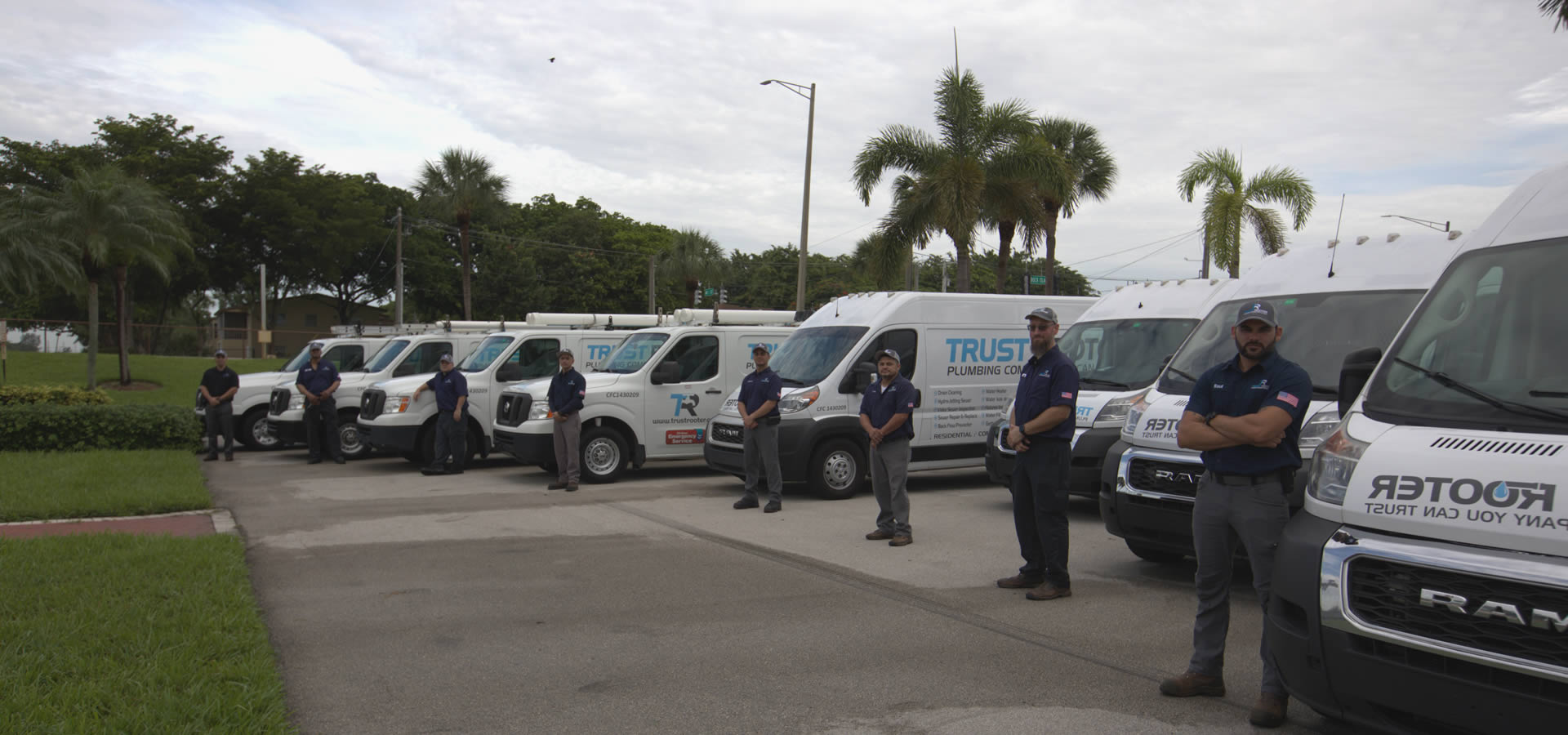
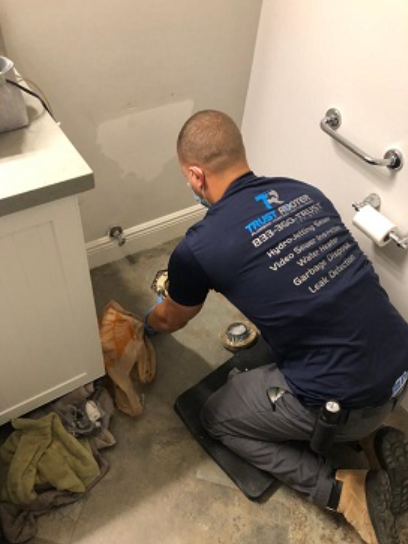

 Jun 27,2025
Jun 27,2025